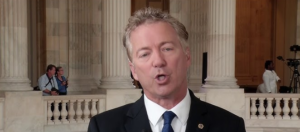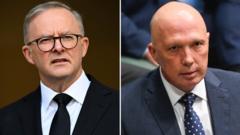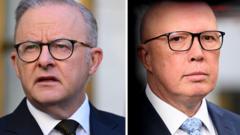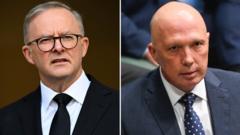Australia has officially mandated a ban on social media use for individuals under the age of 16, following parliamentary approval of what is being hailed as the world's most stringent regulations. This legislation, scheduled to be implemented in at least one year, carries hefty penalties for non-compliance, with fines reaching up to A$50 million (approximately $32.5 million USD). Prime Minister Anthony Albanese asserts that the initiative is a protective measure against the detrimental impacts of social media, a sentiment echoed by numerous parenting organizations. However, the framework of the ban has drawn criticism regarding its execution, potential privacy concerns, and the impact on children's social interactions.
Australia Enacts Landmark Ban on Social Media Usage for Under-16s

Australia Enacts Landmark Ban on Social Media Usage for Under-16s
Australia's ambitious new legislation places strict limitations on social media access for minors, a move lauded by proponents but scrutinized by experts.
The bill was passed in the Senate with a significant majority before approval in the House of Representatives. Albanese emphasized the importance of safeguarding children’s childhood experiences, stating, “We want our kids to have a childhood and parents to know we have their backs.” Specific details on which platforms will be restricted are pending, as the communications minister will further define this with guidance from Australia’s eSafety Commissioner. It is anticipated that popular platforms including Snapchat, TikTok, Facebook, Instagram, and X will be encompassed in this ban, while gaming and messaging apps will be exempted.
Concerns have been raised by digital researchers about the effectiveness of proposed age-verification technologies, especially regarding user privacy and the potential for children to bypass the restrictions through VPNs or other means. Nonetheless, early polling indicates substantial support for the reforms among Australian parents, who have expressed frustration over limited options for protecting their children in a digital age. Advocates argue that the legislation may not satisfactorily address the multifaceted challenges posed by social media, potentially pushing youth towards less regulated online spaces.
Skepticism from the tech industry remains, with major social media companies questioning the practicality and fairness of the legislation. Youth representatives have also voiced their desire to be included in the conversation surrounding such regulations. Albanese, however, remains resolute in his support for the policy, drawing parallels to existing age restrictions on alcohol. Global attention is now shifting towards Australia's legislative approach, with other countries like Norway contemplating similar measures, while the UK's technology secretary considers the implications of instituting a comparable ban.
In summary, Australia sets a precedent with its sweeping social media restrictions for minors, balancing protection, privacy, and engagement in the evolving digital landscape.
Concerns have been raised by digital researchers about the effectiveness of proposed age-verification technologies, especially regarding user privacy and the potential for children to bypass the restrictions through VPNs or other means. Nonetheless, early polling indicates substantial support for the reforms among Australian parents, who have expressed frustration over limited options for protecting their children in a digital age. Advocates argue that the legislation may not satisfactorily address the multifaceted challenges posed by social media, potentially pushing youth towards less regulated online spaces.
Skepticism from the tech industry remains, with major social media companies questioning the practicality and fairness of the legislation. Youth representatives have also voiced their desire to be included in the conversation surrounding such regulations. Albanese, however, remains resolute in his support for the policy, drawing parallels to existing age restrictions on alcohol. Global attention is now shifting towards Australia's legislative approach, with other countries like Norway contemplating similar measures, while the UK's technology secretary considers the implications of instituting a comparable ban.
In summary, Australia sets a precedent with its sweeping social media restrictions for minors, balancing protection, privacy, and engagement in the evolving digital landscape.




















